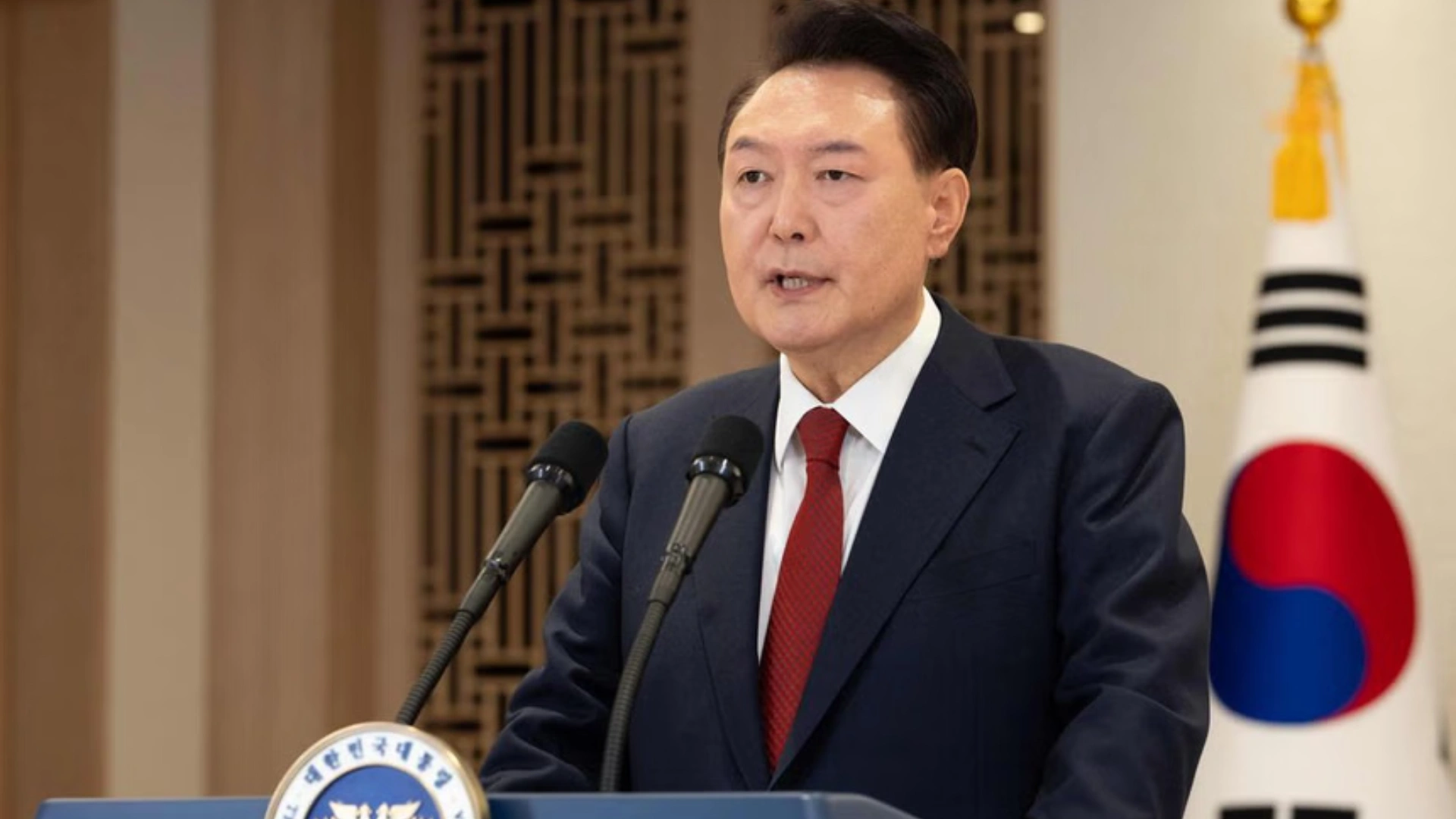Impeached South Korean President Yoon Suk Yeol has been indicted on charges of leading an insurrection after his controversial and short-lived imposition of martial law on December 3. The move is another unprecedented and shocking development coming from the opposition Democratic Party. This now presents the first case of a South Korean president facing such severe charges, potentially attracting life imprisonment or the death penalty. Although South Korea has not carried out an execution in decades, the peninsula was active in its death penalty system in the earlier decades.
The Martial Law
The abrupt declaration of martial law by Yoon rocked Asia’s fourth-largest economy, South Korea. Yoon’s decision to halt political and parliamentary activities while he seized control of the media shocked and infuriated South Korea, which has long been seen as a crucial U.S. ally and a bulwark of democracy in the region.
Soldiers with rifles and night-vision equipment stormed the parliament during the six-hour declaration, smashing through shattered windows in a dramatic battle. However, the decree was swiftly repealed due to swift opposition from lawmakers who voted it down.
Though the martial law declaration lasted only a short time, it unleashed a chain of events that left the country with political instability. The prime minister under Yoon has also been impeached and suspended, and several top military officers are now under indictment for their roles in the alleged insurrection.
Impeachment of President Yoon
Since his impeachment by the opposition-led parliament on December 14, Yoon has been under solitary confinement since January 15, becoming the first sitting president in South Korean history to be arrested. His dramatic arrest followed a tense, armed standoff between his security detail and law enforcement officials.
Prosecutors have alleged that Yoon orchestrated the martial law as a calculated attempt to consolidate power and suppress dissent. Anti-corruption investigators had recommended charges last week, citing evidence of his involvement. Despite his claims that the martial law was merely a warning to break political deadlock, prosecutors maintain that Yoon acted with intent to undermine the country’s democratic institutions.
“Yoon Suk Yeol’s actions have not only violated the constitution but have also betrayed the trust of the South Korean people,” Democratic Party spokesperson Han Min-soo said. “The punishment of the ringleader of insurrection now begins.”
Yoon’s lawyers have flatly rejected the accusations, labeling his detention illegal and stating that it is a political witch hunt by prosecutors. They still claim that his intentions were misunderstood and his actions were never to completely institute martial law.
The case of Yoon is being deliberated by South Korea’s Constitutional Court as criminal proceedings continue. The court will take up to 180 days to determine whether he will be permanently removed from the office or his powers given back as president.
The stakes are high. Removal of Yoon from the position will inevitably lead to a presidential election within 60 days. It can change the fundamental face of politics in this country, particularly since public confidence in its leadership has already been shaken by the crisis.
South Korea had other turbulent political episodes before, such as in 2017 when the then-President Park Geun-hye was impeached. However, this is something of a new precedent for Yoon, considering the charges brought forward are those of incitement and bring with them the prospect of life imprisonment or even a death sentence.























